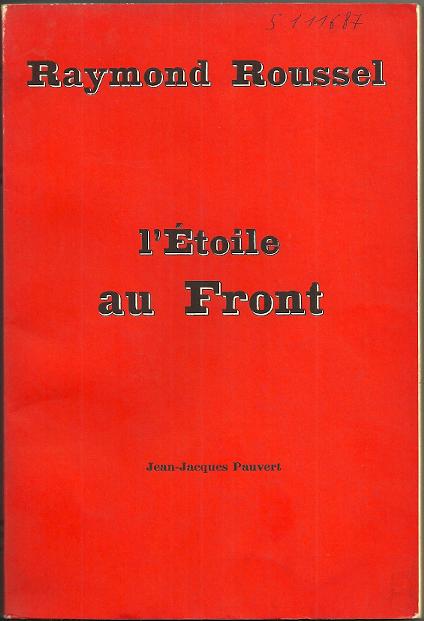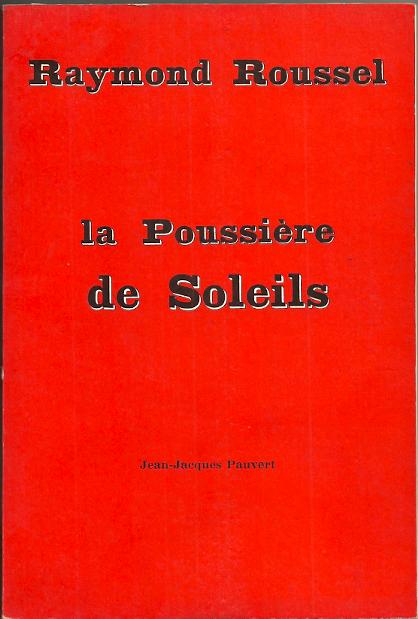Raymond Roussel’s two plays, l’Étoile au Front (The Star on the Brow, 1924) and la Poussière de Soleils (The Dust of Suns, 1926), bear titles that have long intrigued Rousselians. In each case, the title bears little or no relation to the play, and is mentioned only at the end, in a rhetorical flourish. In the former, the last scene shows the character Joussac giving an engaged couple a book called The Predestined, a history of great creators marked since birth with the “star on the brow,” the sign of genius. In the latter, again in the last scene, another couple parts, deciding to look up at the night sky when separated, not at a star or constellation, but at a nebula, a “dust of suns.”
Perhaps the star on the brow was Roussel’s own memory of the “glory” he felt when writing his early works, his conviction that he was destined for fame. And perhaps the dust of suns was a reference to the astronomer Camille Flammarion, whom Roussel admired, and who wrote fervently about the infinitude of worlds in the cosmos.
But I was surprised to find both phrases in an unexpected place: Arthur Edward Waite’s novel The Quest of the Golden Stairs (1927, conflating two stories originally published in 1889 and 1893). Waite, for those unfamiliar with him, was a member of the Hermetic Order of the Golden Dawn back in its Victorian heyday, and wrote many books on the occult. The novel is precious and pompous, and uses the word “faërie” far too often for my taste. But here is the relevant passage, on page 36: “O Stars on the forehead in Faërie, with other wonders of vesture and high adornment, it is love that lights faces in Faërie, and they shine with their own light.” And on page 145: “On the summit Prince Starbeam paused and taking up fine sand he cast it into the air. A light breeze rose and bore it to a broad white road, where it fell as a dust of stars.” Well, yes, they’re stars, not suns; but the image is the same, and the reference just as gratuitous.
All of which makes me wonder if both phrases had some significance in occult or hermetic tradition. Breton’s suspicion that Roussel was an occultist has mostly been dismissed by later biographers; and the curious rumors linking Roussel to the pseudonymous alchemist Fulcanelli remain unproven. But there may be some source that appealed to both Waite and Roussel. I’d be interested in other uses of both phrases.
(Posted by Doug Skinner)



3 responses so far ↓
1 Norman Conquest // Feb 15, 2014 at 4:35 pm
Fascinating…I’m linking to this post on Farcebook.
2 Norman Conquest // Feb 15, 2014 at 4:36 pm
Those uniform covers leave a lot to be desired.
3 Doug // Feb 15, 2014 at 6:14 pm
It’s the French way. Trade paperbacks seldom have illustrated covers.